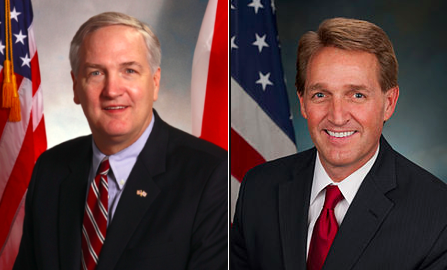This article originally appeared in my Newsmax Column on March 5, 2020
In 2016, like many lifelong Republicans, I was a hesitant Trump supporter. The firebrand candidate's lackluster character, past Democrat affiliation, and polarizing rhetoric made it difficult to believe he could preserve the future of the Republican Party. Dedication to the party motivated my vote more than anything.
However, one term later, President Trump has achieved unprecedented conservative success unseen since the Reagan Era.
The economy is booming. The President's Tax Cuts and Jobs Act and across-the-board deregulation have led to more investment in the American economy than was even possible under Obama. Stock markets are surging, with the S&P hitting a decade-long high last year with a 31.5 percent return. Home sales and manufacturing are growing as well.
The unemployment rate is the lowest it has been in over 50 years at 3.6 percent. The economy added 6.7 million jobs in Trump's first term. And wages grew by 3.1 percent through 2019.
More so than his economic success, Trump's remaking of the federal judiciary could be his most enduring legacy. Trump has appointed the most conservative judges to the federal bench in decades. In just over three years, Trump has appointed 192 federal judges — 137 of those judges are district court judges, 51 are appellate judges, and two are Supreme Court justices. Most notably, Trump has appointed an unprecedented 10 judges to the 9th Circuit Court of Appeals, dramatically shifting the ideological lines of the nation's most liberal appellate court.
These life-tenured judges will protect the values enshrined in our federal Constitution and ensure it is applied in light of the original meaning of the text, not how some activist judge thinks it should be applied.
Moreover, Trump has been a staunch supporter of the pro-life movement. He lent the movement the most national recognition it has received in decades by becoming the first president to attend the annual March for Life in January.
However, Trump's conservative successes are not the only forces that led to my enthusiastic support of the president. The degeneration of the Democratic Party into a pandemic of radical left-wing socialists makes the need for a unified conservative opposition even more paramount than in 2016.
Democrats no longer represent the majority of Americans' values or beliefs. Instead they continually pander to the radical socialist wing of the party, propping up the candidacy of the likes of Bernie Sanders, Alexandria Ocasio-Cortez, and Ilhan Omar whose platforms are antithetical to traditional American moral and political values.
In a CNN Townhall Debate at the begining of the 2020 election cycle, Democratic presidential candidates openly expressed their disdain for religious groups and the free exercise of religious beliefs. The candidates threatened to withhold the tax-exempt status of religious institutions that do not conform to the government's moral beliefs and openly mocked those who hold traditional beliefs of marriage and family.
Many Democrats openly support the nationalization of private industries such as healthcare and energy. Their precarious "Green New Deal" is essentially a plan for the government to take over the energy sector and radically alter the nation's transportation industry. Of course, all of this government overreach will require a massive tax hike, which Democrats are quick to label as a Robin Hood-esque transfer from the rich to the poor.
However, Americans are not too eager to have a party who cannot even run a successful caucus control their access to healthcare and energy. Only one-third of Americans have a favorable view of socialism, half of those being Democrats.
Despite being out of touch with two-thirds of the American population, the active radical wing of the Democratic Party is sure to nominate a candidate with much a more progressive platform than many Americans are comfortable with. That is why it is more imperative now than ever that Conservatives have a unified front heading into 2020 to preserve the fundamental freedoms and values that our nation was founded on.
President Trump's record success and dedication to Conservative principles make him the best candidate to stand up to out-of-touch Democrats in 2020.
Also, even though Biden had a good Super Tuesday, the policies he supports are not that different from Senator Sanders and I still believe Sanders has the easier path to victory. In 2016, we didn't know whether Trump would be a conservative or not. In 2020, Trump has shown that he has governed even more conservatively than President Reagan and the Democratic Party has shown that they are open socialist.
Democrats offer Americans where everything is free ... except for us. I would encourage my Republican friends to get involved in 2020 because this is the most important election of our lifetime.



